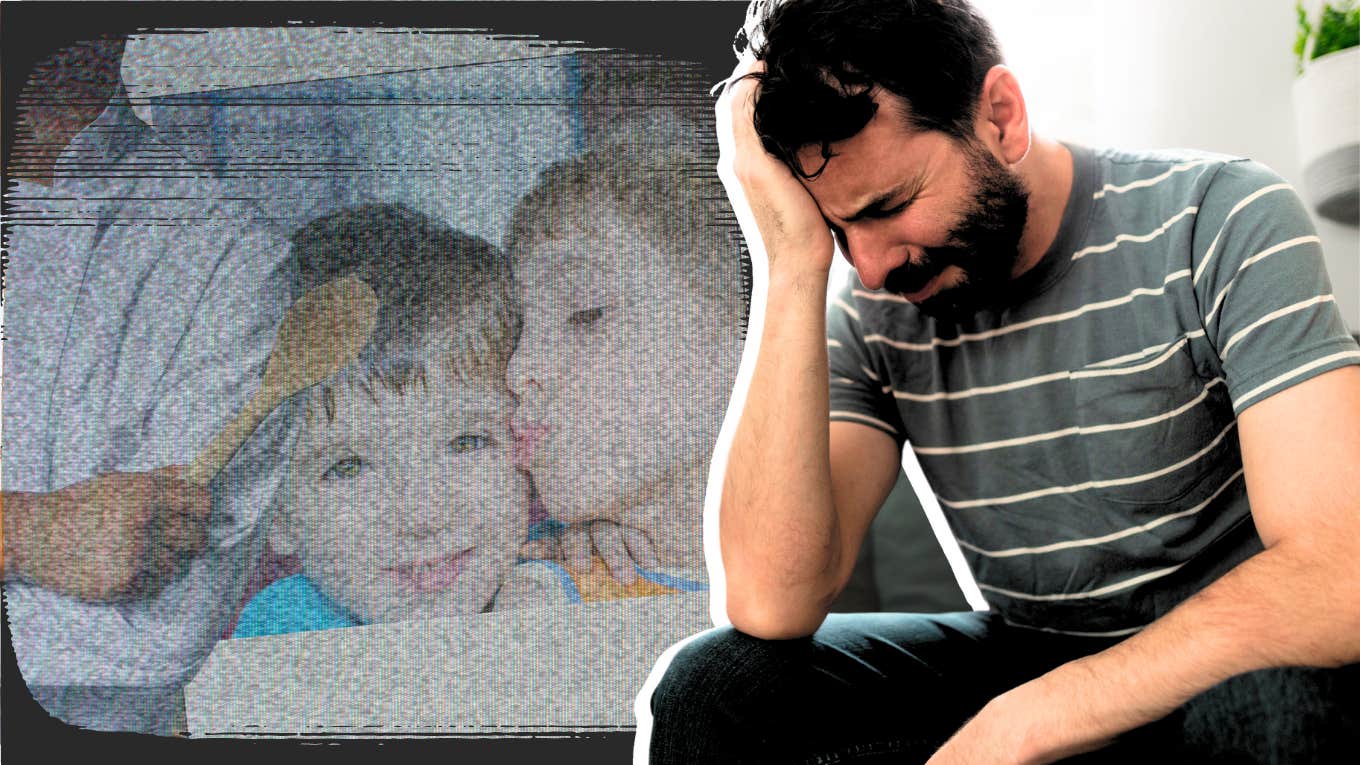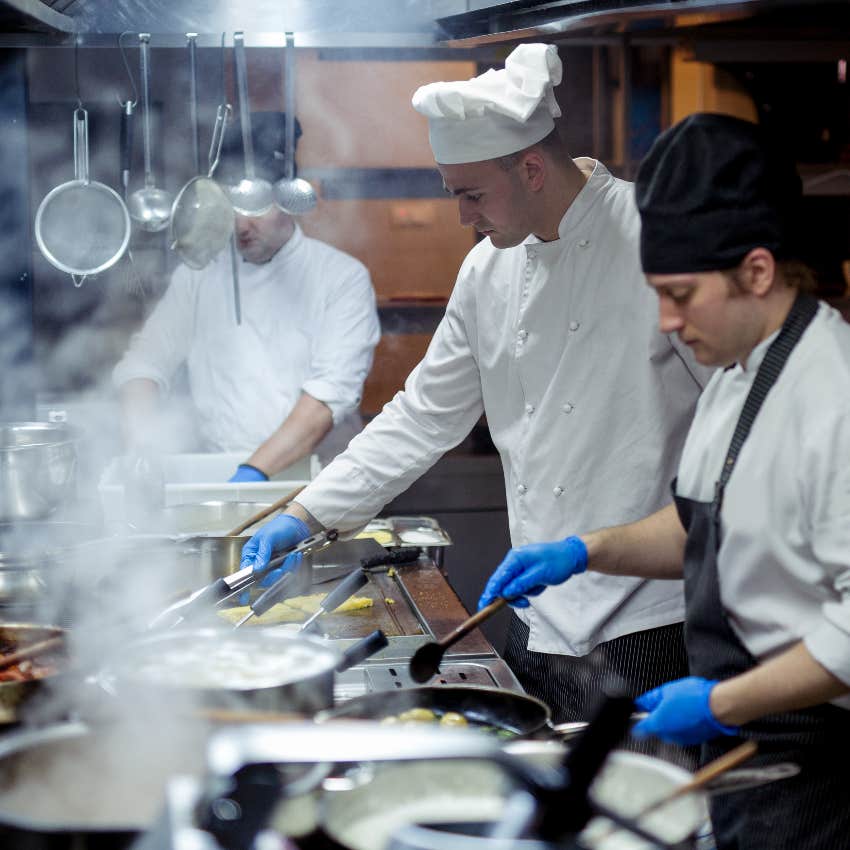I Was A Chef And My Brother Took His Own Life, Too
The TV show 'The Bear' sliced right to the bone.
 Antonio_Diaz, oneblink-cj, Alex Gombash | Canva
Antonio_Diaz, oneblink-cj, Alex Gombash | Canva Although it didn’t look as good as The Bear, I was a chef and my brother departed this world by his own hands, too. The first season of The Bear TV show stirred a deep cauldron of nostalgia inside me, stirring some memories that had been still for quite some time.
When whales die they create something known as whalefall. This is the transformation that occurs from giant floating deceased carcasses to dissipating sinking particulate debris, drifting slowly like snowfall, to the bottom of the ocean.
This is similar to what happens when a loved one dies. Their memories very slowly break apart and fade into the depths. The brotherfall that had accumulated at the bottom of my consciousness was dredged into lucid forefront sentiment again. Brightness singed the edges of that old and pallid burial ground, whisking it into a technicolor vortex of revived and flashing imagery. The heat and energy of a kitchen. The grief and feeling of loss. It came back to me acutely.
The soundtrack at the time my brother passed probably wasn’t as groovy as the show, and the color grading doesn’t pop quite as pleasing in my mind, but the blades were as sharp, the flames were as scorching and the pace was just as high-octane. The tomato tins weren’t full of cash, either, unfortunately, and the goodbye was even more note-less.
The mother in the show plays the embodied grief and turmoil that I remember in my own mother. The cigarette dangling from her fingers with veils of smoke ribbons circling her like a protective curtain, albeit a weak and wispy curtain. From the moment I turned on the show I was fully engaged, as you would be working a dinner service in a kitchen. ‘Long for the ride. Carmy, the main protagonist, beats in the center of the show and I beat in the center of my memories.
The Bear is a show about a brother. There was once a pair of brothers — now there’s just one brother.
This brother, Carmy, left his hometown when the opportunity arose and returned home occasionally to endure the mania that home had become, but home wasn’t home for him anymore. For me, when I was 20, home had disintegrated at the spirit level, then the bonding union between us fractured, and then the unit split and atomized. Home wasn’t much of a home for me either anymore although, I endured it from time to time.
Carmy distanced himself from the chaos of home, excelled in his field, and grew to be world-renowned. I didn’t quite excel — I just worked very hard in a mediocre restaurant. I was renowned within a square half-mile for reasons involved in staying up past midnight. I barely saw the light of day in those years — unless I was stooped in a back alleyway smoking a cigarette on a five-minute break.
It was no Chicago sandwich joint. I was working in a below-ground kitchen off a cobbled inner-city Irish street. There was an inviting warmth in the darkness of the wood-fitted pub. Soft golden illumination sliced beams through the shadowy three-story building. Old men in quiet corners with large glasses of black liquid topped with white bands that slid down with each sup and newspapers splayed out wide. Pockets of musicians would play lowly for themselves. Young bar staff in white shirts would wipe tables dry and collect clinking stacks of empties. And in the depths of the building, there was a fluorescent-lit, stainless steel and white tiled kitchen; bright, hot, and loud.
 ZoranOrcik / Shutterstock
ZoranOrcik / Shutterstock
I was armored in my chef’s whites protecting me from the elements of bubbling oil and steam. My face was exposed though, clean-shaven and red from the exceeding body temperature. My hands were always burnt raw.
Customers were rarely seen from my vantage point, just the constant rotation of waiting staff rattling off orders streaming in and out. The new wait staff would always tremble on their first day calling out their orders to the unknown hostile environment, but they grew just as callous as the rest of us with time.
“Order! — Two soups to start, followed by one beef and one cod!”
Searing cuts in pans, battering fillets, scattering salt grains, dumping chips, grilling vegetables, reaching for plates, ladling soup, carving roasted joints, spooning onto plates, dressing salads, sprinkling chopped herbs, drizzling sauces, and dishes under lamps, finishing with finesse, wiping smudged edges, checking ticket orders, dinging bells.
“Service — table eight away!”
The dynamism of the environment was refracted through the variety of oddball characters. The wild man was always there — just like Cousin — the loud-mouth outspoken knucklehead who everyone rolled their eyes at. The kitchen porters were always bright to me; in the dungeon within the dungeon, non-native speaking and worked to the bone with sweat patches up their backs — always trying to laugh with backward baseball caps.
One day someone came skidding into the kitchen with a look of horror on his face.
"Is Richard here?”
“That’s me.”
“Your mother’s on the phone.”
Strange. My mother never called the restaurant. I followed him and as we turned the corner with eyes wide and a palpitating chest he uttered, “I think something is bad.”
I picked up. Her wailing voice traveled down my spine. A maternal thunderstorm violently boomed in my skull.
He didn’t blast himself on a bridge. He used less explosive but more brutal means. A belt, body weight, and force.
It was a noteless goodbye from my brother. Not even a goodbye, actually, just an ending that never ends. What’s left is rather a memory blight with tragedy and unrequited peace. Now his existence is as blank as endless tranquillity, and yet a perpetual wake of sadness forms a link between me and his endless ending.
No hundreds of thousands in tomato tins, no charming street bistro, and no note behind a locker. Just gone. End.
So I was a chef too with a brother who died by suicide. The show dug it out of me good and deep. Memories of cheffing, memories of grief. From this vantage point over a decade later, it felt alright. Life is swell. Today I’m no longer a chef, but I’ll always be a brother.
If you or somebody that you know is experiencing a mental health crisis, there is a way to get help. Call SAMHSA’s National Helpline at 1-800-662-HELP (4357) or text "HELLO" to 741741 to be connected with the Crisis Text Line.
Richard Gordon is a writer, ecologist, and former chef. His articles have featured in the Echo Live, and for various Medium publications, including Aha! and Human Parts.

